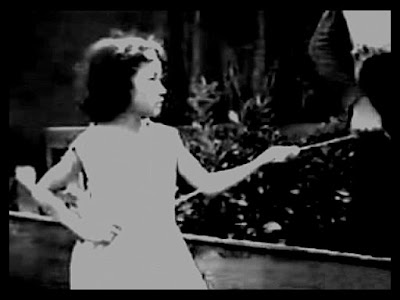Lipa City Mayor Vilma Santos turns a year wiser today and as early as three weeks ago, her fans had been sending me text messages – asking me to write something about the Star For All Seasons on the occasion of her birthday. Since I’ve already written volumes about her, this is a rather difficult task for me to do. However, there will always be a way – especially if you’re doing it for a person you love and admire. For her birthday today, therefore, I’m coming up with a list of my favorite Vilma Santos films – and so here it is:
Trudis Liit (1963) - This is, of course, Vilma’s first film and it has all the elements of a melodrama – the good guys and one extremely bad woman (Bella Flores). This early, you can already tell that Vilma was to the acting profession born. (She won FAMAS Best Child Actress for this film). She doesn’t allow herself to be eclipsed by her veteran co-stars: Luis Gonzales and the Lolita Rodriguez. But with due respect to Vilma, even if she is the one who plays the title role here and is undeniably good in this Sampaguita Pictures boxoffice hit, the one who leaves a really lasting impression in the minds of most viewers is the character played by Connie Angeles – Oreng. After all, wasn’t it this girl who gets chewed up by a German Shepherd in the film?
Ging (1964) - Vilma Santos at her cutest. (She’d, of course, grow up into a lovely woman – one of the most beautiful in local cinema.) Actually, she is even better here than in Trudis Liit because her character requires more than to just cry and look forlorn. But true to form, Vilma delivers as always – especially in her scenes with villainess Carol Varga.
Takbo, Vilma, Dali! (1972) - A very effective suspense-thriller. There are images here that haunt you even long after the screening – like the sight of the old Mother Superior (Mary Walter) being tortured and pushed around before she is finally killed.
Tag-ulan sa Tag-araw (1975) - Her first team-up with Christopher de Leon. About kissing cousins, this movie is way ahead of its time.
Burlesk Queen (1977) - The turning point in Vilma’s career. She gets the Metro Manila Film Festival Best Actress trophy for this one. Yes, that was the controversial year. But no matter what you say, all the awards won by this film were well-deserved.
Pakawalan Mo Ako (1981) - Vilma may have won her second FAMAS for this film, but this movie never really earned critical acclaim in general. However, you just have to appreciate this film for what it is – a melodrama, a well-made one that has all the elements that play with the emotions of the audience.
Relasyon (1982) - Vilma Santos was already a respected actress when she made this Ishmael Bernal film (with script by Ricky Lee). It was this movie, however, that put her on her way to greatness. She wins the first of her four rounds of grand-slam here.
Adultery (1984) - Although it was rated A by the old Film Ratings Board, this film is generally underrated. Vilma gives one of her finest performances in this movie, except that it went practically unnoticed because this was released in the same year as Sister Stella L. (and Alyas, Baby Tsina).
Sister Stella L. (1984) - It may have bombed at the box-office, but it will remain listed as one of the best Filipino films ever made.
Pahiram ng Isang Umaga (1989) - Vilma Santos at her most daring. No, she doesn’t go sexy here or anything. I say daring because a star of her stature doesn’t allow herself to die in any of her films (because the fans don’t like the idea). But she dared accept this film about the business of dying and was rewarded with the fourth of her eight Urian trophies (not counting the two times she was named Actress of the Decade).
Dahil Mahal Kita, The Dolzura Cortez Story (1992) - Vilma is even more daring here because she doesn’t only die in this Laurice Guillen movie, but even dies of AIDS. She gets her second round of grand-slam in this movie.
Bata, Bata Paano Ka Ginawa? (1998) - This Chito Roño movie is significant in Vilma’s filmography because here she forgoes glamour completely for the first time and allows herself to look like the regular person she is supposed to be in the story. She earns the third of her grand-slam victories in this film.
Dekada ‘70 (2002) - The first time I saw this, I have to admit I didn’t like the film that much. It had to take me a second viewing for me to appreciate the movie, Chito Roño’s direction, and the performances of Vilma, Christopher de Leon and Piolo Pascual. In the case of Vilma, it would seem like she doesn’t do anything in this film. However, her quiet performance envelops the entire movie. Somehow there is magic in her performance, but you can’t place it – you just feel it all over. With Dekada ‘70, I daresay that, yes, she has finally become the equivalent of Meryl Streep of Philippine cinema. - Butch Francisco, Philippine Star, November 3, 2005

